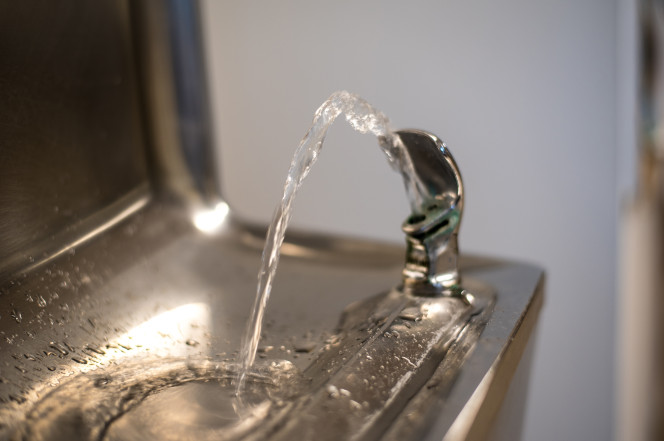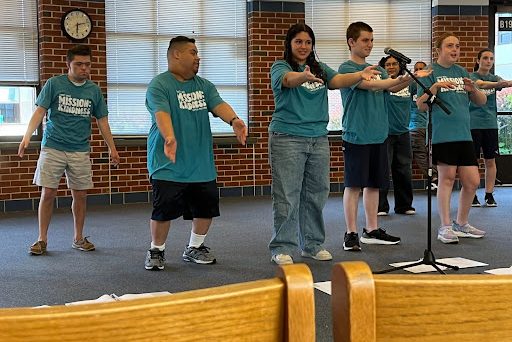Lead-Ridden Water in NYC Schools Poses Health Risks for Students
May 4, 2017
New York City school water was found to have elevated lead levels earlier this year. This poses a danger to students who may have been exposed to lead through the use of contaminated water in drinking fountains.
In early January during regulatory water tests required by the DOE, or Department of Education, many NYC schools tested positive for elevated lead water levels. After more testing, it became apparent that this is not a localized problem. Over one-third of school faucets tested in both Queens and Brooklyn exhibited lead-tainted water. That boils down to 1 in 20 elementary schools testing positive for elevated lead levels.
The water itself is not the problem because it is taken from reservoirs in Upstate New York and is filtered with fluoride and chlorine to be made cleaner before being released to the public. The contamination of clean reservoir water is coming from pipes and fixtures of the old city buildings that are lead-ridden, tainting the water.
Concerned parents contacted the DOE about the possibly unsafe drinking water for their children, and in response got an evasive answer. DOE spokeswoman Toya Holness addressed parents saying, “water delivered from the upstate reservoir system is lead free, and there has never been a known case of lead poisoning due to drinking water in schools.” This answer was not happily accepted by parents worried for their children’s safety.
According to EPA law, remediation has to take place if the lead levels are above 15 parts per million. Over 6,000 schools reached this high threshold. Experts like Dr. Morri Markowitz of Lead Poisoning Treatment and Prevention Program at Montefiore Medical Center expressed the danger of these high levels for children. These levels were created for legal matters, and are not “a health-based standard.” It is probable that small children exposed to elevated lead levels have an increased risk for developing dangerous conditions such as lead poisoning. Many variables such as the body mass of the child, the amount of lead ingested, and over what period of time impacts the risk of lead poisoning.
NYC high school student Bronwen Brenner described her school’s lead-elevated water as coming out of the fountain cloudy white, but quickly clearing. “I never thought anything of it,” she revealed. Now Brenner, and many other NYC students and parents, take extra measures like using bottled water to avoid possibly lead-tainted drinking water provided by their schools.
NYC parents have been spreading the word about this serious problem. Most only got a warning email describing the unsafe water conditions, and no other further action was taken place. Some parents claim that their children’s school didn’t notify them of this problem at all, even after the DOE had recorded the issue. Many other towns such as Flint, Michigan have recently had high levels of lead in their water so organizations are rushing to help solve these dangerous water problems. NYC organization Riverkeeper is taking action by exposing the scandal, and planning ways to improve city tap water. Their plan to fix lead-contaminated tap water is to, “urge officials to pass legislation that ensures unsafe compounds and chemicals are not added to it.”







